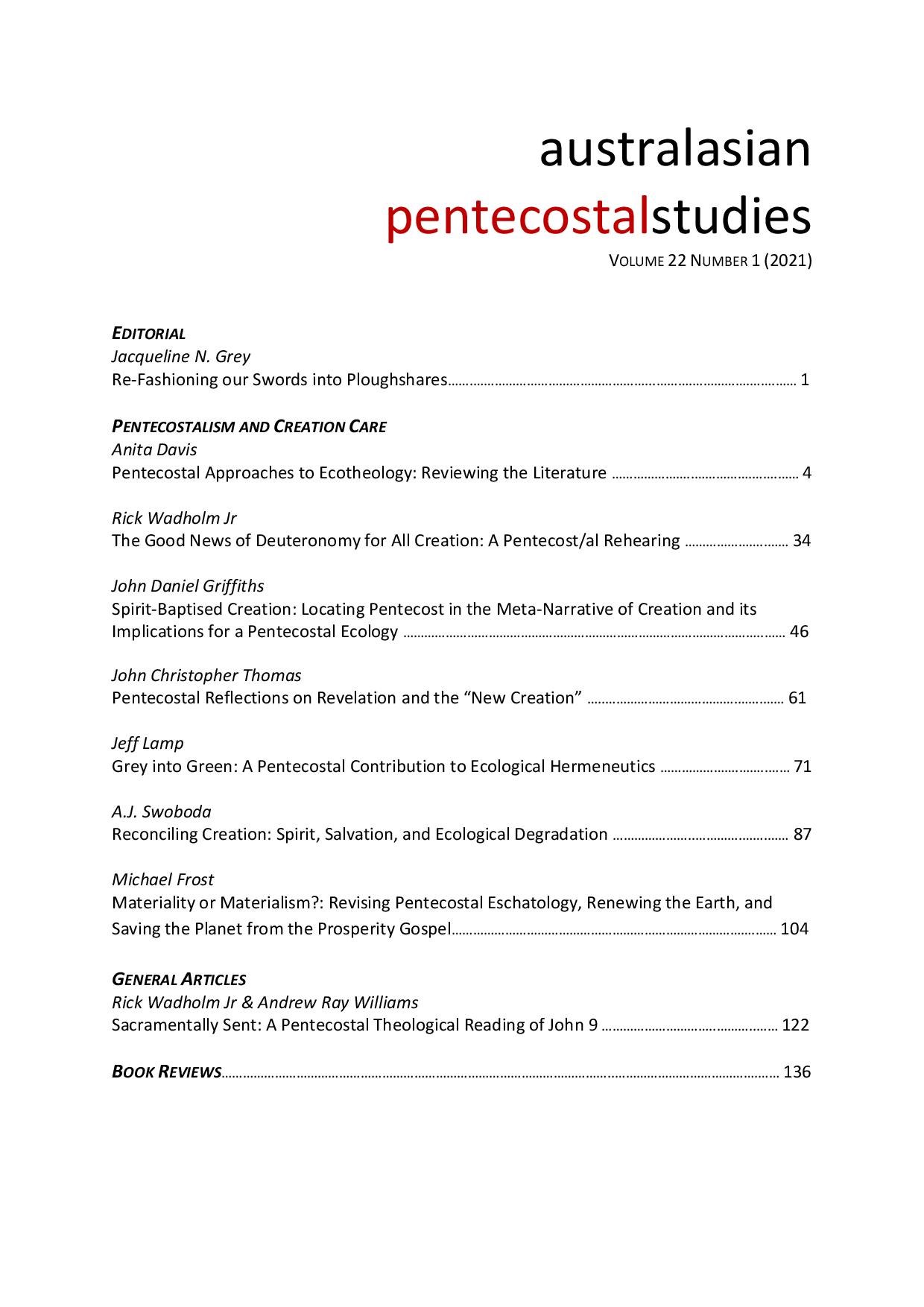Pentecostal Approaches to Ecotheology: Reviewing the Literature
Abstract
The relatively recent maturing of Pentecostal theology as an academic discipline has included consideration of a theology of ecology – the relation of God, human and nonhuman creation. A significant focus of the literature has been to provide a theological foundation for ecological interest and action from doctrinal and pneumatological, hermeneutical, and practical perspectives. Particular attention has been paid to expanding the horizon of a gospel proclamation of the salvation of individual souls and an otherworldly heaven to reveal the material and cosmic scope of the Spirit’s redemptive and transformative work – a truly “full gospel” proclamation. On this basis, to steward and address injustices against creation can be understood as Spirit empowered eschatological mission. The literature has also drawn attention to global practical examples of Pentecostal ecological mission and action. The review concludes Pentecostal interest in the ecological implications of the gospel of Christ is the continuation of a trajectory originating in the earliest phase of the movement; and there is considerable potential to further resource Pentecostals to embrace this expanded horizon.
Downloads
Published
How to Cite
Issue
Section
License
Authors who publish with this journal agree to the following terms:
- Authors retain copyright and grant the journal right of first publication with the work simultaneously licensed under a Creative Commons Attribution License that allows others to share the work with an acknowledgement of the work's authorship and initial publication in this journal
- Authors are able to enter into separate, additional contractual arrangements for the non-exclusive distribution of the journal's published version of the work (e.g., post it to an institutional repository or publish it in a book), with an acknowledgement of its initial publication in this journal.
- Authors are permitted and encouraged to post their work online (e.g., in institutional repositories or on their website) prior to and during the submission process, as it can lead to productive exchanges, as well as earlier and greater citation of published work (See The Effect of Open Access).


